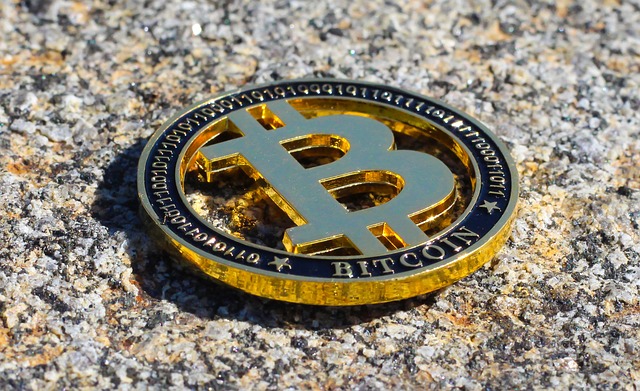Decentralized Finance Technology: Powering the Revolution
Decentralized Finance Technology: Powering the Revolution

What is Decentralized Finance Technology?
Decentralized Finance Technology, often referred to as DeFi, is a revolutionary concept that aims to transform the traditional financial landscape by incorporating the power of blockchain technology. Unlike traditional centralized systems, DeFi operates on decentralized networks, allowing users to have full control and ownership of their financial assets without the need for intermediaries such as banks or other financial institutions.
At its core, DeFi utilizes various blockchain protocols and smart contracts to provide users with a wide range of financial services and applications. These services include lending and borrowing, decentralized exchanges, stablecoins, yield farming, and much more. By leveraging the transparency, security, and efficiency of blockchain technology, DeFi offers a decentralized and trustless alternative to traditional financial systems.
In recent years, the DeFi space has experienced tremendous growth, with new platforms and projects continually emerging. This innovative approach to finance has gained popularity due to its potential to eliminate intermediaries, reduce costs, increase accessibility, and provide financial services to unbanked populations around the world. With its user-centric approach and endless possibilities, DeFi is reshaping the way individuals interact with and manage their finances, ushering in a new era of financial inclusion and empowerment.
How does Decentralized Finance Technology work?
Decentralized Finance Technology, also known as DeFi, operates on a blockchain-based infrastructure, enabling financial transactions and services without the need for intermediaries such as banks or financial institutions. At the core of DeFi lies smart contracts, which are self-executing contracts with the terms of the agreement directly written into the code. These contracts are executed automatically when predetermined conditions are met, eliminating the need for a middleman.
In the DeFi ecosystem, various decentralized applications (DApps) provide specific financial services, such as lending, borrowing, trading, or yield farming. These DApps are built on top of blockchain platforms like Ethereum, which provide the necessary infrastructure for executing smart contracts. Users can interact with these applications directly through a user-friendly interface, usually a web or mobile application, without the requirement of a mediator. By removing intermediaries and utilizing blockchain technology, DeFi offers a transparent and open financial system where users have full control over their funds and transactions.
The advantages of Decentralized Finance Technology
Decentralized Finance Technology offers several advantages that make it an attractive option for individuals and businesses. Firstly, one of the key benefits is the removal of intermediaries. Traditional financial systems often rely on third-party institutions, such as banks and investment firms, to facilitate transactions. However, with decentralized finance, these intermediaries are eliminated, allowing for direct peer-to-peer interactions. This not only reduces costs but also enhances speed and efficiency in conducting financial activities.
Secondly, decentralization brings increased accessibility. In many parts of the world, access to traditional financial services is limited or even non-existent. Decentralized Finance Technology provides an opportunity for individuals who are unbanked or underbanked to access financial services using only a smartphone and an internet connection. This inclusivity empowers marginalized populations and opens up new possibilities for economic growth and financial independence. Additionally, with decentralized finance, transactions can be conducted 24/7, without the need for arbitrary working hours imposed by traditional institutions.
The role of blockchain in Decentralized Finance Technology
Blockchain technology plays a pivotal role in decentralized finance (DeFi) technology, acting as a backbone for its operations. Built on a decentralized network of computers, the blockchain ensures data integrity, security, and transparency in financial transactions without the need for a centralized authority. Its distributed ledger system allows for the creation, verification, and recording of transactions in a secure and immutable manner.
One of the key advantages that blockchain brings to DeFi is its ability to eliminate intermediaries. Traditional financial systems typically rely on intermediaries, such as banks or clearing houses, to facilitate transactions. However, with blockchain technology, financial transactions can be executed directly between participants, removing the need for intermediaries and reducing costs. Additionally, the use of smart contracts, which are self-executing contracts with predefined rules, further streamlines the process by automating the execution and enforcement of agreements. This not only improves efficiency but also reduces the risk of human error or fraud. Overall, blockchain technology empowers individuals to have greater control over their financial assets and operations, revolutionizing the way finance operates.
• Blockchain technology acts as a backbone for decentralized finance (DeFi) technology.
• It ensures data integrity, security, and transparency in financial transactions without the need for a centralized authority.
• The distributed ledger system allows for secure and immutable transaction recording.
• Blockchain eliminates intermediaries in financial transactions, reducing costs.
• Smart contracts automate the execution and enforcement of agreements, improving efficiency and reducing the risk of human error or fraud.
• Individuals have greater control over their financial assets and operations with blockchain technology.
Exploring the different types of Decentralized Finance Technology platforms
There are various types of Decentralized Finance (DeFi) technology platforms that have emerged in recent years, each offering unique features and functionalities. One type of platform is decentralized lending and borrowing platforms. These platforms enable individuals and businesses to lend and borrow funds without the need for intermediaries such as banks. Users can deposit their assets as collateral and receive loans in return, with interest rates determined by the platform’s algorithms. This type of DeFi platform not only provides borrowers with access to credit but also offers lenders the opportunity to earn interest on their assets.
Another type of DeFi platform is decentralized exchanges (DEXs).

The potential impact of Decentralized Finance Technology on traditional finance systems
The potential impact of Decentralized Finance Technology on traditional finance systems is significant. It has the potential to revolutionize the way we transact, invest, and access financial services. One of the key advantages of decentralized finance technology is its ability to provide greater financial inclusion. By using blockchain technology, individuals who are currently unbanked or underbanked can have access to a wide range of financial services without the need for traditional intermediaries. This can be particularly beneficial in developing countries where access to basic financial services is limited. Additionally, decentralized finance technology can enable faster and more efficient transactions, reducing the need for manual processes and paperwork.
Another potential impact of decentralized finance technology is the disintermediation of traditional financial institutions. With decentralized finance platforms, individuals can engage in peer-to-peer lending, borrowing, and investing without the need for banks or other intermediaries. This can lead to a more democratic and decentralized financial system, where individuals have more control over their own finances. However, it also raises concerns about the role of traditional financial institutions and the potential disruption to their business models. Additionally, the lack of regulation and oversight in decentralized finance can pose risks for investors and consumers, highlighting the need for regulatory frameworks to be developed to protect their interests.
Challenges and risks associated with Decentralized Finance Technology
Decentralized Finance Technology (DeFi) has emerged as an innovative and disruptive force, promising to revolutionize the traditional financial landscape. However, it also comes with its fair share of challenges and risks. One significant challenge is the vulnerability to security breaches and hacks. Since DeFi platforms are built on blockchain technology, they are susceptible to potential vulnerabilities in their smart contracts and protocols. These vulnerabilities can be exploited by malicious actors who can manipulate the system and steal funds. The lack of centralized authority means that users are responsible for the security of their own assets, which can be daunting for those unfamiliar with the intricacies of blockchain technology.
Another risk associated with DeFi technology is the high level of volatility and market risk. Unlike traditional financial systems, DeFi platforms often lack regulation and oversight, leading to price fluctuations and increased market uncertainty. The absence of a central authority or regulatory body means that there is no safety net to protect against market manipulation or fraudulent activities. Additionally, the decentralized nature of DeFi platforms can make it challenging to resolve disputes or recover lost funds in the event of a security breach or scam. This lack of recourse can deter potential users from fully embracing the benefits of DeFi technology.
Regulatory considerations for Decentralized Finance Technology
Regulatory considerations play a crucial role in the development and adoption of Decentralized Finance (DeFi) technology. As DeFi platforms increase in popularity, regulators around the world are starting to take notice and evaluate how these technologies fit within existing regulatory frameworks. The decentralized nature of DeFi presents unique challenges for regulators, as it operates outside the traditional financial system and allows for anonymous transactions. This raises concerns about anti-money laundering (AML) and Know Your Customer (KYC) regulations, as well as the potential for fraud and market manipulation. In order to address these issues, regulators are exploring ways to bring DeFi platforms under their purview without stifling innovation.
One key challenge is striking a balance between regulation and innovation. While it’s important to protect investors and consumers, overly burdensome regulations could hamper the growth and potential of DeFi technology. Regulators are aware of this delicate balance and are working to establish clear guidelines and standards that promote consumer protection while fostering innovation. Additionally, international cooperation among regulators is crucial to ensure a consistent approach to regulating DeFi technology across jurisdictions. This collaboration will help prevent regulatory arbitrage and provide a level playing field for businesses and users operating in the DeFi space. Overall, regulatory considerations for DeFi technology are complex, requiring careful thought and collaboration between regulators, developers, and industry stakeholders.
The future of Decentralized Finance Technology
The future of Decentralized Finance Technology is promising and full of potential. As blockchain technology continues to evolve and become more accessible, it is expected that decentralized finance will become more mainstream. This means that individuals and businesses will have greater opportunities to participate in financial transactions without relying on traditional intermediaries like banks or brokers.
One of the key aspects of the future of Decentralized Finance Technology is increased efficiency and transparency. Smart contracts, powered by blockchain, will play a crucial role in automating financial transactions, eliminating the need for manual processes and reducing human error. Additionally, the decentralized nature of these platforms will provide greater transparency as all transactions are recorded on the blockchain, making it easier to detect fraud or any other form of malpractice.
Moreover, as technology progresses, we can expect to see the development of more sophisticated decentralized finance platforms. This could include innovations in areas such as lending, insurance, and asset management. With decentralized finance technology, individuals and businesses will have greater access to financial services that were previously limited to a select few. It has the potential to democratize finance and empower individuals to have more control over their financial lives.
Overall, the future of Decentralized Finance Technology holds great promise. As the technology continues to mature and gain widespread adoption, we can expect to see a more efficient, transparent, and inclusive financial system. However, challenges such as regulation and security must be addressed to ensure the long-term success and sustainability of decentralized finance platforms. Nonetheless, the potential benefits far outweigh the risks, and it is an exciting time for the future of finance.
Real-world applications of Decentralized Finance Technology
Decentralized Finance Technology (DeFi) is revolutionizing various sectors, offering real-world applications that redefine traditional financial systems. One notable application is in the field of lending and borrowing. With DeFi, individuals can access loans or lend their digital assets directly without the need for intermediaries such as banks. This enables seamless and efficient lending processes, reducing costs and providing greater accessibility to financial services for individuals who may not have access to traditional banking systems.
Another real-world application of DeFi is in the field of decentralized exchanges (DEXs). These platforms enable individuals to trade digital assets directly with one another, without the need for a centralized exchange. This decentralized approach ensures better security, transparency, and control over one’s digital assets. With DeFi, individuals can trade cryptocurrencies anytime, anywhere, and without having to rely on intermediaries, thereby democratizing access to financial markets.
The potential of DeFi extends beyond lending and trading.

What is Decentralized Finance Technology?
Decentralized Finance Technology, also known as DeFi, refers to the use of blockchain and smart contract technology to create financial systems that operate without the need for intermediaries like banks or traditional financial institutions.
How does Decentralized Finance Technology work?
Decentralized Finance Technology works by using blockchain and smart contracts to create decentralized applications (DApps) that can perform various financial functions, such as lending, borrowing, trading, and investing. These DApps are built on blockchain platforms like Ethereum and operate without the need for intermediaries.
What are the advantages of Decentralized Finance Technology?
Decentralized Finance Technology offers several advantages, including transparency, accessibility, and increased financial control for individuals. It also enables faster and cheaper transactions, eliminates the need for traditional middlemen, and allows for a wider range of financial services.
What is the role of blockchain in Decentralized Finance Technology?
Blockchain technology plays a crucial role in Decentralized Finance Technology by providing a transparent and immutable ledger of transactions. It ensures the security and integrity of financial transactions and enables the execution of smart contracts, which automate and enforce the terms of financial agreements.
What are the different types of Decentralized Finance Technology platforms?
There are various types of Decentralized Finance Technology platforms, including decentralized exchanges (DEXs), lending platforms, stablecoin platforms, and prediction markets.

How can Decentralized Finance Technology impact traditional finance systems?
Decentralized Finance Technology has the potential to disrupt traditional finance systems by providing an alternative, decentralized, and more inclusive financial infrastructure. It can democratize access to financial services, reduce reliance on centralized institutions, and increase financial autonomy for individuals.
What are the challenges and risks associated with Decentralized Finance Technology?
Some challenges and risks associated with Decentralized Finance Technology include regulatory uncertainty, smart contract vulnerabilities, hacking risks, and market volatility. Additionally, the complexity of these technologies may pose a barrier to adoption for some users.
Are there any regulatory considerations for Decentralized Finance Technology?
Yes, regulatory considerations are important for the development and adoption of Decentralized Finance Technology. As the technology evolves, regulators need to address issues related to investor protection, financial stability, and compliance with existing regulations.
What does the future hold for Decentralized Finance Technology?
The future of Decentralized Finance Technology looks promising. As the technology matures and becomes more user-friendly, we can expect to see increased adoption, innovation, and integration with traditional finance systems. It has the potential to revolutionize the way we think about and interact with financial services.
What are some real-world applications of Decentralized Finance Technology?
Real-world applications of Decentralized Finance Technology include peer-to-peer lending platforms, decentralized exchanges, stablecoins, decentralized insurance, and decentralized asset management. These applications provide individuals with greater financial freedom and new opportunities for investment and wealth creation.
Todays Featured Product:
Buy, exchange and grow your crypto securely with a Ledger hardware wallet, combined with the Ledger Live app. It’s never been easier to keep your crypto safe and accessible. Buy direct from Ledger.com and get todays Special Offers Here.




